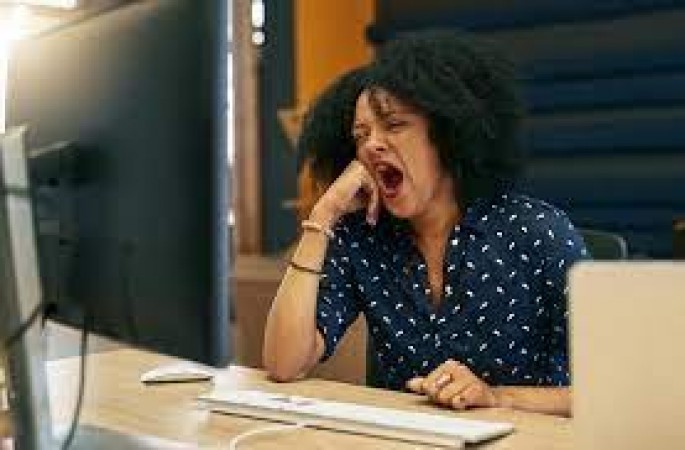
In the daily battle against the afternoon slump, many people find themselves reaching for a cup of coffee or indulging in a quick catnap. But have you ever wondered why it seems that women often feel sleepier after lunch than men? Let's delve into this fascinating phenomenon and explore the science behind it.
The Biological Clock
Understanding Circadian Rhythms
Our bodies operate on a biological clock, known as circadian rhythms. These internal clocks regulate various bodily functions, including the sleep-wake cycle. Circadian rhythms are influenced by environmental cues like light and temperature, and they play a crucial role in determining when we feel most alert and when we experience fatigue.
Hormonal Influence
Estrogen and Progesterone
One significant factor contributing to the post-lunch sleepiness experienced by women is hormonal fluctuations. Women experience monthly hormonal changes due to their menstrual cycle. Two key hormones, estrogen and progesterone, rise and fall throughout this cycle, impacting energy levels and mood. Just before menstruation, when progesterone levels are high, women may feel sleepier.
The Midday Slump
Postprandial Fatigue
The post-lunch dip in energy is a common experience for many individuals, regardless of gender. After eating a meal, especially one rich in carbohydrates, blood is diverted from the brain to aid in digestion, leading to feelings of drowsiness. This midday slump affects both men and women, but women may perceive it as more pronounced due to hormonal factors.
Psychological Factors
Stress and Sleepiness
Stress can also play a significant role in feeling sleepier after lunch. Women often juggle multiple responsibilities, including work, family, and household tasks. The stress and mental fatigue associated with these roles can contribute to post-lunch sleepiness. Men may experience stress differently or have different stressors, affecting their afternoon alertness.
The Importance of Naps
The Power of Short Naps
To combat post-lunch sleepiness, taking a short nap can be highly effective. A 20-30 minute nap can help boost alertness and improve mood. Men and women can both benefit from these power naps to recharge during the day.
Lifestyle and Sleep Quality
Balancing Responsibilities
Balancing work, family, and personal time can be challenging. Women, often the primary caregivers in their families, may have to manage more responsibilities, leading to increased fatigue. Finding time for quality sleep and relaxation can be vital to overcoming afternoon sleepiness.
Dietary Choices
Healthy Eating for Energy
Diet plays a crucial role in how we feel after meals. Opting for a balanced lunch with a mix of protein, healthy fats, and complex carbohydrates can help maintain stable energy levels. Avoiding heavy, carbohydrate-rich meals can reduce post-lunch fatigue for both men and women.
The Gender Gap in Sleep
Sleep Disparities
It's important to note that sleep disparities exist between men and women. Women often experience more sleep disturbances due to factors like pregnancy, menopause, and hormonal changes, which can contribute to daytime sleepiness. While it may seem like women feel sleepier after lunch than men, this phenomenon is influenced by a complex interplay of biological, hormonal, psychological, and lifestyle factors. Understanding these influences can help individuals, regardless of gender, better manage their energy levels throughout the day.
How Fitness Trackers Have Evolved and Their Impact on Health
These symptoms appear in the body when cholesterol increases
What is brain stroke? Why does the risk increase in winter? Know how to avoid it